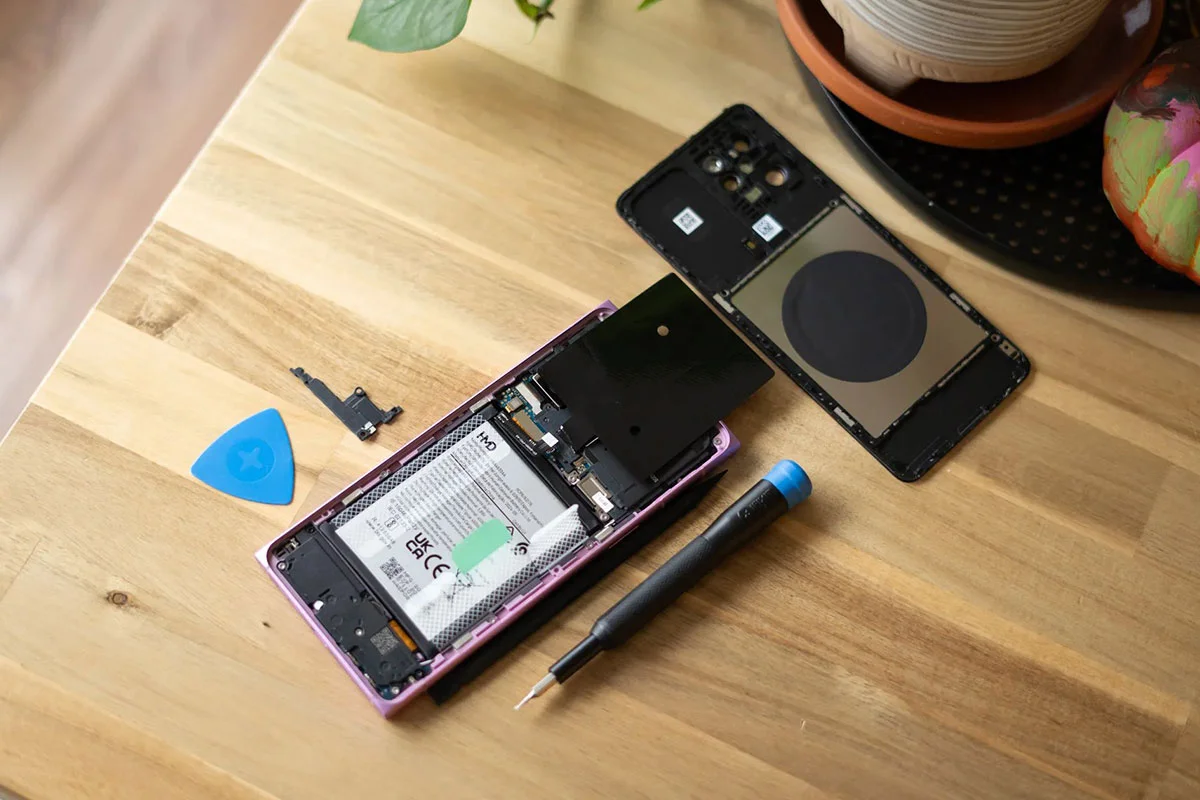Introduction
We depend on our phones for everything—calls, messages, directions, banking, work. But over time, even the best smartphones start showing signs of wear.
One of the first things to go? The battery.
If you’ve ever wondered, “Is my battery dying or is it just my imagination?”—you’re not alone. Knowing when to replace your phone battery can save you a lot of frustration (and maybe even extend your phone’s life).
Here’s how to tell if it’s time for a fresh battery—and what you can do about it.
1. Your Phone Battery Drains Fast
If you feel like you charge your phone in the morning—and by lunch it’s nearly dead—you might have a battery problem.
Batteries lose capacity with each charge cycle. After about 500 full charges, most batteries drop to around 80% of their original strength.
Signs you’re draining too fast:
- Losing 20% or more battery in an hour of light use
- Watching your battery percentage bounce around strangely
- Needing to charge multiple times a day with normal use
If you’re dealing with this, it’s a big red flag.
2. Your Phone Shuts Down Unexpectedly
Ever have your phone die at 30% or 40% battery? That’s not normal.
When lithium-ion batteries age, they sometimes struggle to supply consistent power. If the battery can’t deliver enough current, your phone shuts off to protect itself.
This is one of the clearest signs it’s time for a battery replacement.
Ignoring it could lead to deeper damage or permanent system issues.
3. The Battery Is Swollen
This one is serious.
A swollen battery means gases have built up inside the battery case—usually from age, damage, or overheating. You might notice:
- The screen lifting from the frame
- The back of the phone bulging out
- Buttons feeling “off” or harder to press
Important:
If you see or feel swelling, stop using the phone immediately. A swollen battery can leak, overheat, or even catch fire. Get it professionally replaced as soon as possible.
4. Your Phone Feels Overheated Often
Phones naturally get a little warm when gaming, charging, or using heavy apps. But if your phone feels hot during simple tasks—like texting or scrolling—that’s not good.
An old or damaged battery works harder than it should, causing heat buildup.
Consistent overheating can damage other phone components over time, too. Don’t ignore it.
5. Charging Takes Forever (Or Happens Way Too Fast)
If your phone used to charge in an hour and now crawls to full after three, your battery may be losing its ability to hold and accept a charge properly.
On the flip side, if your phone charges to 100% super quickly, it might mean the battery is failing to store energy—giving a “false full” reading.
Either extreme usually signals a deeper battery issue.
6. You Get Warnings About Battery Health
Some newer phones (like iPhones) actually tell you when the battery health is dropping.
You might see notifications like:
- “Battery health degraded”
- “Service battery soon”
- “Performance management applied due to battery health”
You can also check manually in your settings:
- iPhone: Settings > Battery > Battery Health
- Android: Varies by brand (some have built-in diagnostics, or you can use apps like AccuBattery)
If your maximum capacity shows under 80%, it’s definitely time to replace it.
7. The Phone Slows Down or Acts Strange
Old batteries can’t deliver stable power, which sometimes causes weird phone behavior like:
- Apps crashing randomly
- Phone freezing or lagging often
- Weird touch screen behavior
It’s not always the software’s fault. Sometimes, bad battery output makes the whole system unstable.
Replacing the battery can bring your phone back to life—often faster than a factory reset.
8. How Long Should a Phone Battery Last Anyway?
Most smartphone batteries are designed to last 2 to 3 years before noticeable decline.
Depending on how much you use and charge your phone daily, you might start seeing signs sooner—or later.
If your phone is older than two years and showing even small issues, battery wear is very likely the cause.
9. Is It Worth Replacing the Battery?
In many cases, yes.
Replacing a phone battery is:
- Much cheaper than buying a new phone
- Environmentally smarter (less waste)
- A way to add another year or two to your device’s life
Just make sure you get it replaced by a professional or at least use high-quality parts. Cheap batteries can cause more problems than they solve.
If your phone is very old or has other issues (like broken screens or outdated hardware), upgrading might make more sense.
10. Tips to Extend New Battery Life
If you do replace your battery, here’s how to get the most out of it:
- Don’t let your phone overheat (avoid hot cars, heavy gaming during charging)
- Avoid draining to 0%—try to recharge at 20–30%
- Use official or certified chargers only
- Remove your case while charging if the phone gets too warm
- Charge smarter—no need to hit 100% every time
A little care goes a long way toward making your battery last longer this time around.
Conclusion
If you’ve been asking, “Is it time to replace my phone battery?”—you now know the signs to look for.
Fast draining, overheating, unexpected shutdowns, swollen parts, and warning messages are all clear signals that your battery’s best days are behind it.
Replacing your battery can give your phone a second life, save you serious money, and keep you connected without daily headaches.
Don’t wait until it’s too late. Listen to your phone—and take action early for a smoother, safer mobile experience.


